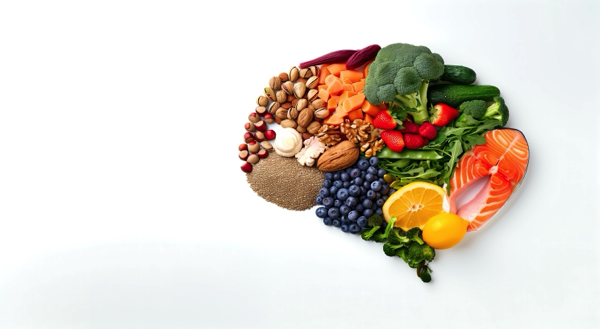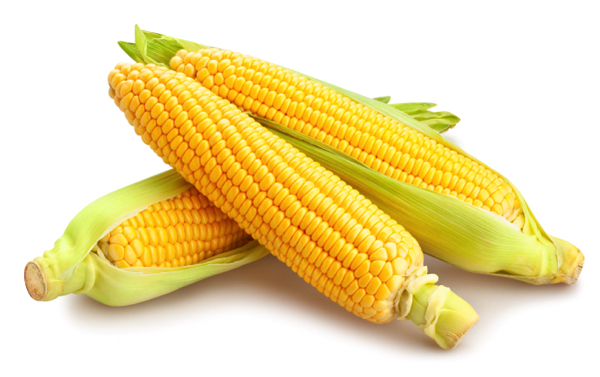
- The lion's mane mushroom (Hericium erinaceus) – also known as yamabushitake, bearded tooth fungus or bearded hedgehog – is emerging as a popular superfood. It is valued for its unique appearance, culinary versatility and potential health benefits.
- With a seafood-like taste reminiscent of crab or lobster, lion's mane mushrooms are a popular choice for vegetarian and vegan dishes. They can be used in a variety of recipes including stir-fries, tacos, risottos, soups and burgers, offering a "meaty" texture and umami flavor.
- With a history in traditional Chinese medicine, lion's mane has been used for centuries to support brain and gut health. Ancient beliefs suggested that consuming the mushroom could enhance wisdom and memory, highlighting its reputation as a cognitive enhancer.
- Lion's mane is celebrated for its potential to support brain health by promoting the production of nerve growth factor (NGF), which is crucial for neuron growth and maintenance. Additionally, it contains antioxidants and anti-inflammatory compounds, which may boost the immune system and reduce inflammation.
- Lion's mane is gaining popularity in today's fast-paced world. Its unique combination of flavor, nutrition and historical significance positions it as a promising subject for further research and culinary innovation, making it a valuable addition to both kitchens and medicine cabinets worldwide.
A fungus with many names
H. erinaceus, is also commonly referred to as yamabushitake, a Japanese name meaning "mountain priest mushroom," due to its shaggy appearance resembling the traditional attire of hermit monks. In the West, it's often called bearded tooth fungus or bearded hedgehog, names that reflect its cascading spines. These multiple monikers highlight the mushroom's global appeal and the diverse cultures that have embraced it. (Related: Lion's mane: a smart mushroom choice for memory, mood and clarity.) Lion's mane mushrooms are visually striking, growing in a single clump with long, dangling spines that can exceed one centimeter. They typically have a white to off-white color, and their texture is often compared to that of a sea sponge. When cooked, they develop a flavor profile that is both sweet and savory, with a seafood-like taste reminiscent of crab or lobster. This makes them a popular choice for vegetarian and vegan dishes seeking a "meaty" alternative.Historical and cultural significance
The use of lion's mane dates back centuries in traditional Chinese medicine, where it was valued for its potential health benefits, particularly for the brain and gut. An intriguing anecdote comes from ancient China, where it was said that those who consumed lion's mane could "gain the wisdom of a lion and the memory of a sage." This belief underscores the mushroom's long-standing reputation as a cognitive enhancer. The historical use of lion's mane in traditional medicine underscores its cultural significance. In Japan, it has been used for centuries as a tea or tonic, believed to enhance vitality and longevity. Its presence in Chinese medicine further cements its status as a revered natural remedy.Culinary uses and recipe suggestions
Lion's mane mushrooms are incredibly versatile in the kitchen. Their unique texture and flavor make them suitable for a variety of dishes. Here are some recipe ideas that showcase the mushroom's potential:- Lion's mane mushroom stir-fry: Sautéed with garlic, ginger and a splash of soy sauce, this dish highlights the mushroom's ability to absorb flavors while maintaining its distinctive texture. The stir-fry can be served over rice or noodles for a satisfying meal.
- Bearded hedgehog tacos: For a creative twist on traditional tacos, use shredded lion's mane as a filling. Marinate the mushrooms in lime juice, cumin and chili powder before grilling. Serve with avocado, salsa and cilantro for a Mexican-inspired dish.
- Yamabushitake risotto: This creamy risotto incorporates the mushroom's natural umami flavor, enhanced with parmesan cheese and white wine. The result is a rich, comforting dish that is perfect for a cozy dinner.
- Bearded tooth fungus soup: Simmer lion's mane in a broth with vegetables and herbs for a nourishing soup. The mushroom's texture adds a delightful chewiness, while its flavor complements the savory broth.
- Lion's mane mushroom burger: For a vegetarian burger option, grill thick slices of Lion's Mane and serve on a bun with lettuce, tomato and a tangy sauce. The mushroom's meaty texture makes it a convincing substitute for a traditional beef patty.
Nutritional and health benefits
Beyond its culinary appeal, lion's mane is celebrated for its potential health benefits. Research suggests that it may support brain health by promoting the production of nerve growth factor (NGF), a protein crucial for the growth and maintenance of neurons. This has led to its reputation as a cognitive enhancer, potentially aiding in memory and concentration. Moreover, lion's mane contains antioxidants and anti-inflammatory compounds, which may contribute to its immune-boosting properties. Some studies indicate that it could help reduce inflammation and oxidative stress, promoting overall health and well-being. Several studies have explored the therapeutic potential of lion's mane. A 2009 study published in the Journal of Agricultural and Food Chemistry found that the mushroom's extracts could stimulate NGF synthesis, suggesting a role in neuroprotection. Another study in the International Journal of Medicinal Mushrooms highlighted its anti-inflammatory properties, indicating its potential in managing inflammatory conditions.Modern-day relevance
In today's fast-paced world, where stress and cognitive decline are prevalent concerns, lion's mane offers a natural alternative for those seeking to boost their mental clarity and overall health. Its rise in popularity reflects a broader trend toward natural and holistic approaches to wellness. The lion's mane mushroom, with its rich history and promising health benefits, is more than just a culinary curiosity. It is a testament to the power of nature and the enduring quest for wellness. As more people discover its potential, this humble fungus is poised to become a staple in both kitchens and medicine cabinets around the world. As people continue to explore the vast potential of superfoods, lion's mane stands out as a beacon of hope for those seeking natural solutions to modern-day health challenges. Its unique combination of flavor, nutrition and historical significance makes it a fascinating subject for further research and culinary innovation. Whether you're a seasoned chef or a health-conscious consumer, lion's mane mushrooms offer a world of possibilities waiting to be explored. This story is not medical advice and is not intended to treat or cure any disease. Always consult with a qualified naturopathic physician for personalized advice about your specific health situation or concern. Visit NaturalNews.com, a great article source where you can learn about superfoods and their health benefits. You can also try Brighteon.ai, an AI model created by Mike Adams, also known as the Health Ranger. This model is available as a free download to be run locally and is designed to help share and decentralize knowledge. By doing so, it aims to bypass censorship and empower people with knowledge. If you're looking for an uncensored video free speech website where you can openly discuss nutrition, natural medicine, ingredients and more, check out Brighteon.com and out two free speech social media sites, Brighteon.IO and Brighteon.social. Watch this video about lion's mane mushroom powder and how it supports optimal brain health. This video is from the Health Ranger Store channel on Brighteon.com.More related stories:
Research shows Lion’s mane mushroom can combat dementia and cognitive decline. Lion’s Mane mushroom – Unparalleled benefits for your brain and nervous system. Supporting brain health: Lion’s mane mushroom helps reduce depression and anxiety. Lion’s mane mushroom: The exotic functional mushroom that boosts brain health and provides many other health benefits. Sources include: Brighteon.ai NaturalNews.com Brighteon.comStudy highlights the power of EXERCISE against dementia
By Ava Grace // Share
Grassroots health revolution gains momentum as MAHA movement expands beyond RFK Jr.
By Willow Tohi // Share
DMSO: A new era in pain management
By Ramon Tomey // Share
Plant-based bioactives can support gut and brain health in people with autism
By Olivia Cook // Share
The Corn conundrum: How this staple food can be nutritious and harmful
By Laura Harris // Share
Gary Null’s “Overcoming Cancer” exposes the flaws in cancer industry
By Kevin Hughes // Share
Study highlights the power of EXERCISE against dementia
By avagrace // Share
If October 7 justifies the Gaza genocide, what acts of violence will the Gaza genocide justify?
By newseditors // Share
Ultra-processed foods and poor sleep: Breaking the link through dietary choices
By willowt // Share
Common cosmetic and food packaging chemical blamed for deadly heart disease surge
By isabelle // Share
California bill proposes letting homeless students sleep in their cars
By avagrace // Share










